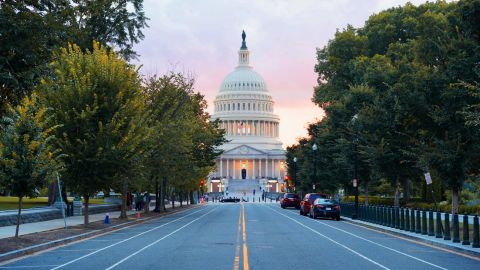House appropriations subcommittee proposes increases to NIH budget for FY20
The U.S. House appropriations subcommittee on Labor, Health and Human Services, Education and Related Agencies debated and amended an appropriations bill for fiscal year 2020. The bill includes funding for the National Institutes of Health. If signed into law, the NIH will be appropriated at $41.1 billion, 4% above FY19. The proposed bill also provides an increase in funding to the National Institute of General Medical Sciences, National Institute of Neurological Disorders and Stroke, and National Cancer Institute of $3.03 billion, $2.31 billion, and $6.25 billion, respectively.
| Institute (full bill text) | FY19 enacted (billion) | FY20 proposed (billion) |
| NIGMS | $2.87 | $3.03 (↑ $0.56 billion above President’s request) |
| NINDS | $2.27 | $2.31 (↑ $0.29 billion above President’s request) |
| NCI | $6.14 | $6.25 (↑ $1.01 billion above President’s request) |
| NHLBI | $3.49 | $3.66 (↑ $0.66 billion above President’s request) |
| NIAID | $5.52 | $5.81 (↑ $1.06 billion above President’s request) |
The U.S. Senate will also introduce an appropriations bill that includes funding for the NIH in FY20. Senate Majority Leader Mitch McConnell, R-Ky., has discussed a deal to address the spending caps with House Speaker Nancy Pelosi, D-Calif., and President Donald Trump. If the Senate proposes funding levels that differ from those introduced by the House, both chambers will need to agree on final budget numbers.
Funding levels proposed in the subcommittee’s bill come in direct contrast with Trump’s FY20 budget request. The president’s budget calls for a 15% decrease to the NIH’s budget, reducing the biomedical research agency by $6 billion below FY19 levels. This reduction in funding falls under spending caps imposed by the Budget Control Act, which legislates sharp cuts in domestic spending to reduce the national debt, currently at $22 trillion. If the U.S. Congress is unable to reach a budget deal to increase the spending caps for nondefense discretionary programs by the end of the fiscal year on Sept. 30, an automatic budget reduction of 9% across all federal agencies will be imposed.
The NIH has received large increases in recent years, providing new investments towards disease-specific research and allowing the agency to increase the number of research grants that it supports.
The American Society for Biochemistry and Molecular Biology has advocated for increases to the NIH’s budget and will continue to work with the community in support of the biomedical research funding agency.
Enjoy reading ASBMB Today?
Become a member to receive the print edition four times a year and the digital edition monthly.
Learn moreGet the latest from ASBMB Today
Enter your email address, and we’ll send you a weekly email with recent articles, interviews and more.
Latest in Policy
Policy highlights or most popular articles

Building a stronger future for research funding
Hear from Eric Gascho of the Coalition for Health Funding about federal public health investments, the value of collaboration and how scientists can help shape the future of research funding.

Councilors advocate for science on Capitol Hill
ASBMB Councilors meet with their elected officials to advocate for basic scientific research funding and training the next generation of scientists.

Hope for a cure hangs on research
Amid drastic proposed cuts to biomedical research, rare disease families like Hailey Adkisson’s fight for survival and hope. Without funding, science can’t “catch up” to help the patients who need it most.

Supporting science through advocacy and community building
ASBMB calls on scientists to take action as funding cuts and policy shifts threaten the U.S. research enterprise, emphasizing the power of community advocacy and persistence in protecting the future of science.

Seven steps to advocating in your home state
Find out how to schedule, prepare for and conduct a productive district office meeting to communicate the importance of fundamental scientific research funding to your representatives.

ASBMB members call for funding and agency support amidst uncertainty
In 60 meetings on Capitol Hill, scientists urge legislators to reaffirm support for scientific innovation
